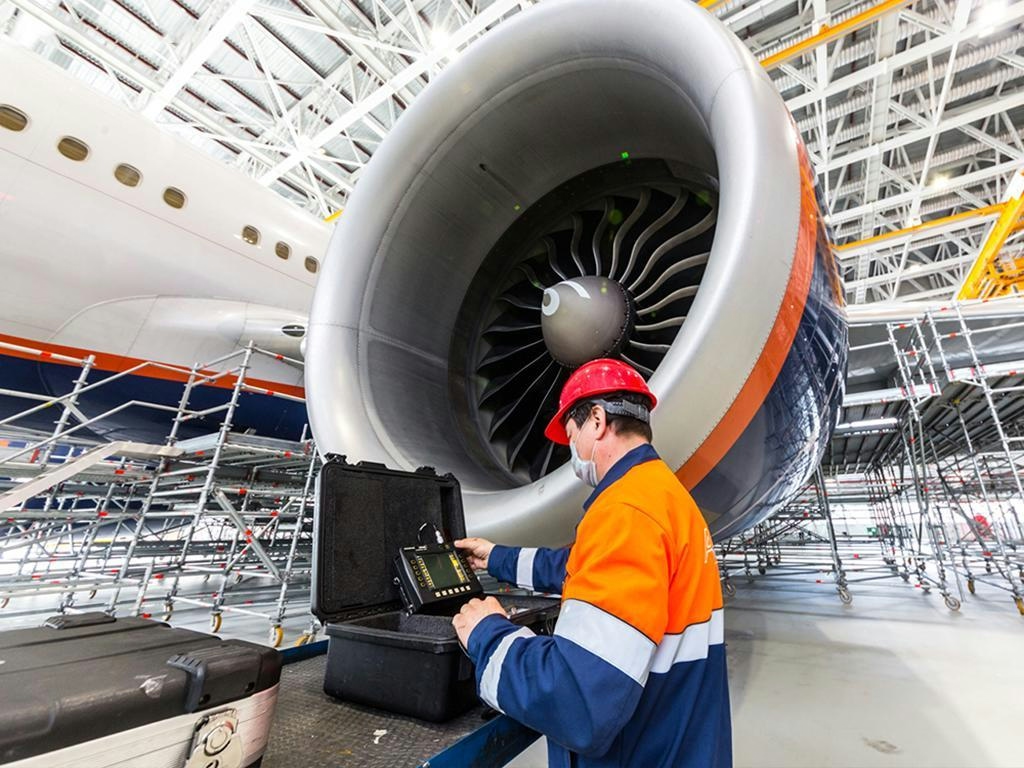AeroGenie — Seu Copiloto Inteligente.
Tendências
Categories
FL Technics Acquires JOB AIR Technic

FL Technics to Acquire JOB AIR Technic, Enhancing MRO Capacity in Central Europe
FL Technics, a leading global provider of aviation maintenance, repair, and overhaul (MRO) services, has announced its intention to acquire JOB AIR Technic a.s., a Czech-based MRO provider. The transaction remains subject to customary closing conditions and regulatory approvals. Central to the deal is the transfer of a 17,000-square-meter MRO facility located at Leoš Janáček Airport Ostrava, the largest regional airport in the Czech Republic. This acquisition is set to substantially increase FL Technics’ maintenance capabilities within the Central European region.
Expanding Service Capabilities and Geographic Reach
Established in 1993 and formerly part of the Czechoslovak Group (CSG), JOB AIR Technic employs over 400 specialists and operates two hangars comprising eight bays designed to accommodate both narrow-body and wide-body aircraft. The company provides a broad range of services, including base maintenance, avionics, structural repairs, composite work, emergency equipment servicing, non-destructive testing, and interior refurbishment. Additionally, JOB AIR operates a Part 147 maintenance training center and holds regulatory certifications from multiple authorities such as EASA, FAA, Transport Canada, and Bermuda CAA. These approvals enable the servicing of various aircraft types, including Airbus A320 (and A320NEO), A330, and Boeing 737 NG and MAX models, catering to major European and international airlines.
Zilvinas Lapinskas, CEO of FL Technics, highlighted the strategic importance of the acquisition, noting that JOB AIR’s existing infrastructure and client base will allow FL Technics to immediately expand its service capacity without the delays typically associated with new construction and certification processes. He emphasized the facility’s advantageous location, which facilitates coverage across Europe, North Africa, and Turkey within a three- to four-hour flight radius.
Industry Context and Market Implications
While the acquisition promises to strengthen FL Technics’ position in the MRO sector, it remains contingent upon regulatory approvals and the effective integration of operations—factors that may present challenges. The transaction occurs amid a cautiously optimistic business aviation market, where sentiment indicators have shown only modest improvement against a backdrop of ongoing uncertainties.
Recent industry developments, such as Gama Aviation’s acquisition of Capital Air Ambulance and the expansion of MRO and fixed-base operator (FBO) services in Illinois, illustrate how consolidation can prompt competitors to recalibrate their strategies. These adjustments may include increased investment in customer support and the broadening of service offerings to maintain competitive advantage.
Market responses to FL Technics’ acquisition of JOB AIR Technic are expected to vary from cautious optimism to intensified competition, as stakeholders evaluate the potential impact on service capacity and regional influence. As the deal advances through the approval process, industry observers will closely monitor FL Technics’ integration efforts and the broader competitive dynamics within the evolving MRO landscape.

Emirates Unveils Cabin Design for New Boeing 777X

Eighteen Years On, the Airbus A380 Remains Central to a $34 Billion Airline

How a boom in luxury airline seats is slowing down jet deliveries

Navitaire Outage Attributed to Planned Maintenance

DigiYatra Debuts Outside Aviation at India AI Impact Summit

Vietnam Orders Strengthen Boeing’s Commercial Outlook

Airbus Signals Uncertainty Over Future A400M Orders

JobsOhio Awards $2 Million Grant to Hartzell Propeller for Innovation Center

Collins Aerospace Tests Sidekick Autonomy Software on YFQ-42A for U.S. Air Force CCA Program

How the Airbus A350-1000 Compares to the Boeing 777
